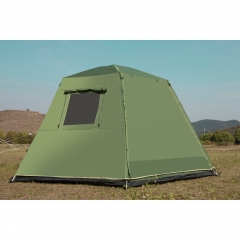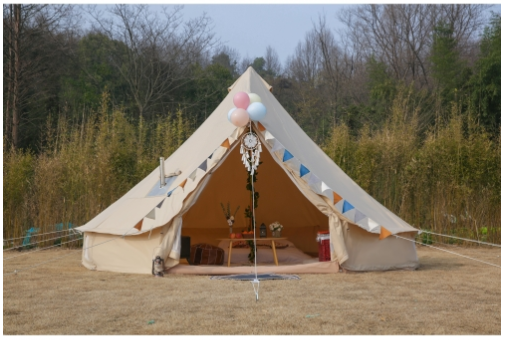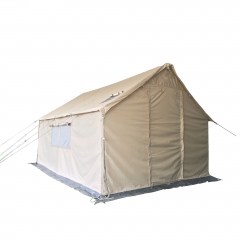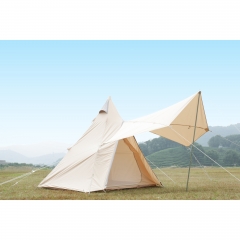Polyester Tent-Should You Buy One?
Polyester waterproof performance
The waterproof performance of synthetic fibers comes from the coating applied to the internal surface and is tested to provide a hydrostatic head rating (the pressure required to push water through the coating and fabric).
Although this indicates the performance of the fabric, other considerations, such as the quality of the substrate and the application of the coating, will also affect the waterproof performance of the fabric.
Unlike cotton tent fabrics, the seams of
polyester tents are sealed to prevent water from entering. Unfortunately, this means that water cannot enter the tent and cannot leave it. Water vapor can be trapped in the tent and cause condensation (although condensation can be reduced with adequate ventilation). This is usually obvious in the morning when the tent has been zipped up at night, which can create some very wet interior walls.

Polyester maintenance
The waterproof performance of polyester will not be affected by dirt, grease, and oil (although substances such as aerosol fly killers can damage the coating). However, they will have an impact on the DWR processing used externally.
Any dirt, grease, and oil should be cleaned, and then rinsed with clean water. Spray water repellent when necessary. Re-repairing is not a routine maintenance task. Any patch that loses its waterproof effect can be quickly treated with DWR spray.
UV damage
Any synthetic material will deteriorate under the ultraviolet radiation of the sun. If used in a specific area exposed to direct sunlight, especially for a long time, it will speed up this process. Although this is taken into account during the manufacturing process, the use of tarps hanging from the tent roof can provide additional protection.
Is it polyester?
Polyester fiber can be said to be the best synthetic material for making tents. It is durable and does not require immediate care-although the tent should still be kept clean and dry.
It is light in weight and small in size, which is very suitable for making throwing easier when transportation and storage space is limited. User-friendly performance coupled with a relatively low economic price tag makes polyester a good fabric for home use.
Nylon
It is a lightweight material and more hydrophilic than polyester. Water vapor can pass through more easily. Without the protection of other substances, it cannot resist ultraviolet radiation very well.
Polyester
Polyester has higher inherent durability than nylon. Better resistance to abrasion, exposure to ultraviolet radiation, performance in severe weather conditions, heavy rain, and strong winds. It is more difficult than ordinary nylon and has worse permeability to water vapor. I mean, polyester fiber is not as breathable as nylon. It absorbs less water than nylon. Polyester is usually filled with polyurethane (PU). The Ripstop weaving technology significantly improves the final layer shape.
For a long time, it was considered better than nylon. Used in camping tents or mountain/family tents.
We are
polyester tent suppliers. If you are interested in our products, please feel free to contact us.




